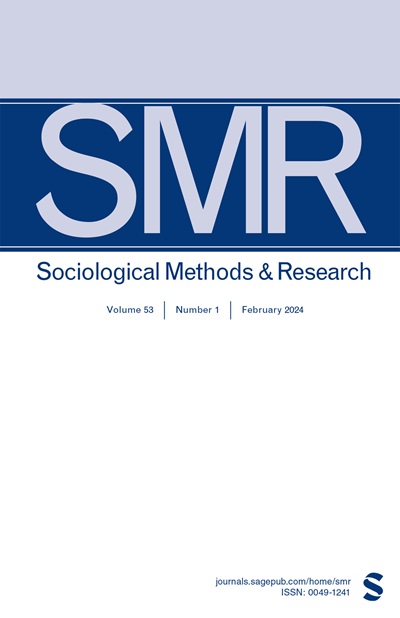What Types of Survey Questions are Prone to Interviewer Effects? Evidence Based on 29,000 Intra-Interviewer Correlations From 28 Countries of the European Social Survey
IF 6.5
2区 社会学
Q1 SOCIAL SCIENCES, MATHEMATICAL METHODS
引用次数: 0
Abstract
Interviewer effects are a common challenge in face-to-face surveys. Understanding the conditions that make interviewer variance more likely to occur is essential in tackling sources of bias. Earlier evidence suggests that certain features of the survey instrument provide more ground for interviewer influence. For instance, attitudinal, sensitive, complex or open-ended questions invite more interviewer variance. In this article, we aim to validate earlier results, previously derived from single-country studies, by using the large cross-national sample of the European Social Survey (ESS). We compare 29,330 intra-interviewer correlations derived from 984 survey questions from 28 countries using data from 10 waves of the ESS. The questions were manually coded based on several characteristics. These features of survey questions were then used as predictors of intraclass correlations (ICCs) in multilevel models. The results show that question characteristics account for a significant portion of the variation in ICCs, with certain types, such as attitude and non-factual questions, items appearing later in the survey, and those using showcards, being especially susceptible to interviewer effects. Our findings have important implications for both interviewer training and questionnaire design.什么类型的调查问题容易产生面试官效应?基于来自28个欧洲社会调查国家的29,000个访谈者内部相关性的证据
访谈者效应是面对面调查中常见的挑战。了解使面试官更有可能出现差异的条件是解决偏见来源的必要条件。早期的证据表明,调查工具的某些特征为采访者的影响提供了更多的依据。例如,态度型、敏感型、复杂型或开放式的问题会让面试官产生更多的差异。在本文中,我们旨在通过使用欧洲社会调查(ESS)的大型跨国样本来验证先前从单个国家研究中得出的早期结果。我们比较了来自28个国家的984个调查问题的29330个访谈者内部相关性,使用了来自10波ESS的数据。这些问题是根据几个特征手工编码的。然后,这些调查问题的特征被用作多层模型中类内相关性(ICCs)的预测因子。结果表明,问题特征占ICCs变化的很大一部分,某些类型的问题,如态度和非事实问题,在调查中出现较晚的项目,以及使用showcards的项目,特别容易受到采访者效应的影响。我们的研究结果对面试官培训和问卷设计都有重要的启示。
本文章由计算机程序翻译,如有差异,请以英文原文为准。
求助全文
约1分钟内获得全文
求助全文
来源期刊

Sociological Methods & Research
Multiple-
CiteScore
16.30
自引率
3.20%
发文量
40
期刊介绍:
Sociological Methods & Research is a quarterly journal devoted to sociology as a cumulative empirical science. The objectives of SMR are multiple, but emphasis is placed on articles that advance the understanding of the field through systematic presentations that clarify methodological problems and assist in ordering the known facts in an area. Review articles will be published, particularly those that emphasize a critical analysis of the status of the arts, but original presentations that are broadly based and provide new research will also be published. Intrinsically, SMR is viewed as substantive journal but one that is highly focused on the assessment of the scientific status of sociology. The scope is broad and flexible, and authors are invited to correspond with the editors about the appropriateness of their articles.
 求助内容:
求助内容: 应助结果提醒方式:
应助结果提醒方式:


